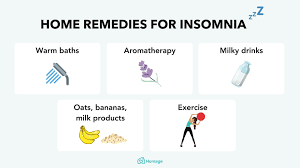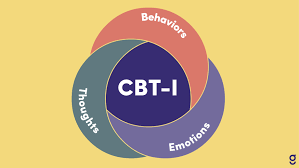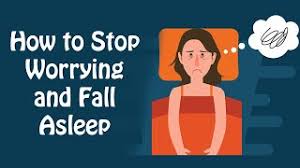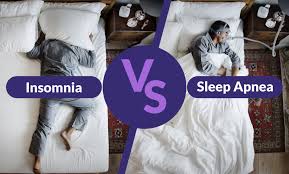Insomnia Treatment Options
Insomnia, characterized by difficulty falling asleep or staying asleep, can have a significant impact on one’s overall well-being and quality of life. Fortunately, there are various treatment options available to help individuals manage and overcome insomnia. Here are some common approaches:
Lifestyle Changes
Simple lifestyle modifications can often improve sleep quality and help alleviate insomnia symptoms. These may include:
- Establishing a regular sleep schedule
- Avoiding stimulants like caffeine and nicotine close to bedtime
- Creating a relaxing bedtime routine
- Maintaining a comfortable sleep environment
- Incorporating regular exercise into your routine
Cognitive Behavioral Therapy for Insomnia (CBT-I)
CBT-I is a structured program that helps individuals identify and change thoughts and behaviors that contribute to insomnia. It typically involves techniques such as relaxation training, sleep restriction, and cognitive restructuring to promote healthy sleep patterns.
Medications
In some cases, healthcare providers may prescribe medications to help manage insomnia symptoms. These may include over-the-counter sleep aids or prescription medications that target specific aspects of the sleep-wake cycle.
Alternative Therapies
Some individuals find relief from insomnia through alternative therapies such as acupuncture, yoga, meditation, or herbal supplements like valerian root or melatonin. It’s important to consult with a healthcare provider before trying these options.
Addressing Underlying Issues
In certain cases, addressing underlying medical or psychological issues may be necessary to effectively treat insomnia. Conditions such as anxiety, depression, or sleep apnea can contribute to sleep disturbances and should be addressed in conjunction with insomnia treatment.
If you’re experiencing persistent insomnia symptoms that significantly impact your daily life, it’s important to consult with a healthcare provider or a sleep specialist for proper evaluation and personalized treatment recommendations.
7 Effective Strategies for Overcoming Insomnia and Enhancing Sleep Quality
- Establish a bedtime routine to signal your body it’s time to sleep.
- Limit exposure to screens and bright lights before bedtime.
- Create a comfortable sleep environment that is dark, quiet, and cool.
- Avoid caffeine and heavy meals close to bedtime.
- Engage in relaxation techniques like deep breathing or meditation before bed.
- Consider cognitive behavioral therapy for insomnia (CBT-I) with a healthcare provider.
- Consult a doctor about potential medication options if other treatments are ineffective.
Establish a bedtime routine to signal your body it’s time to sleep.
Establishing a bedtime routine can be a powerful tool in managing insomnia. By creating a consistent series of calming activities before bed, such as reading a book, taking a warm bath, or practicing relaxation techniques, you signal to your body that it’s time to wind down and prepare for sleep. This routine helps establish a sense of predictability and signals to your brain that it’s time to transition from wakefulness to rest, ultimately promoting better sleep quality and overall well-being.
Limit exposure to screens and bright lights before bedtime.
Limiting exposure to screens and bright lights before bedtime is a crucial tip in managing insomnia. The blue light emitted by electronic devices like smartphones, tablets, and computers can interfere with the body’s natural sleep-wake cycle, making it harder to fall asleep. By reducing screen time and opting for dimmer, warmer lighting in the evening hours, individuals can signal to their bodies that it’s time to wind down and prepare for restful sleep. This simple adjustment can help promote better sleep quality and overall sleep hygiene.
Create a comfortable sleep environment that is dark, quiet, and cool.
Creating a comfortable sleep environment that is dark, quiet, and cool can significantly improve your chances of getting a good night’s rest. Darkness signals to your body that it’s time to sleep, while minimizing noise disturbances can help you stay asleep throughout the night. Additionally, keeping the room cool can help regulate your body temperature for optimal sleep conditions. By prioritizing these elements in your sleep environment, you can enhance the quality of your rest and promote better overall sleep hygiene.
Avoid caffeine and heavy meals close to bedtime.
Avoiding caffeine and heavy meals close to bedtime is a key tip in managing insomnia. Caffeine is a stimulant that can interfere with the ability to fall asleep, while heavy meals can lead to indigestion and discomfort that disrupt sleep. By steering clear of these substances and foods before bedtime, individuals can create a more conducive environment for relaxation and restful sleep. Making this simple adjustment to one’s evening routine can have a significant impact on improving sleep quality and overall well-being.
Engage in relaxation techniques like deep breathing or meditation before bed.
Engaging in relaxation techniques such as deep breathing or meditation before bed can be a beneficial strategy to help manage insomnia. These practices can help calm the mind, reduce stress, and promote a sense of relaxation that is conducive to falling asleep. By incorporating these techniques into your bedtime routine, you can create a peaceful environment that signals to your body it’s time to unwind and prepare for restful sleep.
Consider cognitive behavioral therapy for insomnia (CBT-I) with a healthcare provider.
Consider cognitive behavioral therapy for insomnia (CBT-I) with a healthcare provider as a highly effective treatment option for managing insomnia. CBT-I is a structured program that helps individuals address the underlying thoughts and behaviors contributing to sleep difficulties. Through techniques such as relaxation training, sleep restriction, and cognitive restructuring, CBT-I aims to promote healthier sleep patterns and improve overall sleep quality. Consulting with a healthcare provider about CBT-I can provide personalized guidance and support in developing strategies to overcome insomnia and achieve restful, rejuvenating sleep.
Consult a doctor about potential medication options if other treatments are ineffective.
When other insomnia treatment options prove ineffective, it may be beneficial to consult a doctor regarding potential medication solutions. In some cases, prescribed medications can help manage persistent sleep disturbances and provide relief from insomnia symptoms. A healthcare provider can assess your individual situation, consider any underlying factors contributing to your sleep difficulties, and recommend appropriate medication options tailored to your needs. It’s essential to follow the guidance of a medical professional when exploring medication as a treatment for insomnia to ensure safety and effectiveness.




